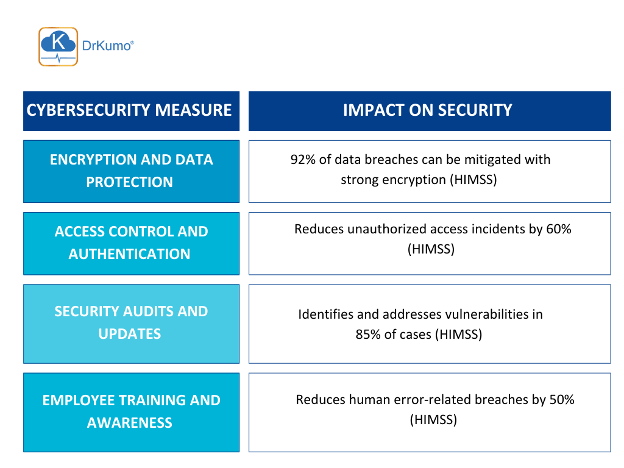In the rapidly evolving landscape of healthcare technology, digital health solutions have revolutionized patient care, offering unprecedented convenience and accessibility. According to the American Hospital Association (AHA), 76% of U.S. hospitals use telehealth services, reflecting the widespread adoption of these technologies. However, this advancement comes with significant challenges, particularly concerning the protection of sensitive patient data from cyber threats. As the adoption of digital health solutions such as remote patient monitoring and telehealth services accelerates, so does the need for robust cybersecurity measures to safeguard patient information.
The Rise of Digital Health Solutions
Digital health solutions encompass a wide array of technologies designed to enhance healthcare delivery. From digital behavioral health solutions to digital health engagement platforms, these innovations streamline patient-provider interactions, improve treatment adherence, and empower individuals to manage their health effectively from anywhere. Additionally, they play a crucial role in patient management and adherence to healthcare protocols. As these solutions become integral to modern healthcare, ensuring the security of patient data becomes paramount.
Cybersecurity Challenges in Digital Health Solutions
With the increasing interconnectedness of healthcare devices and systems, cybersecurity vulnerabilities pose a significant threat. Malicious actors target digital health platforms to access sensitive patient information, including medical records, treatment plans, clinical protocols, medical guidelines, and personal identifiers. The consequences of a data breach in digital health can be severe, compromising patient privacy, eroding trust in healthcare providers, and even leading to identity theft or fraudulent medical claims.
Essential Cybersecurity Measures
To mitigate these risks, healthcare organizations and technology providers must implement comprehensive cybersecurity protocols. According to a 2022 report by the Healthcare Information and Management Systems Society (HIMSS), 70% of healthcare organizations experienced a significant security incident in the past year, emphasizing the need for robust cybersecurity measures.
Following are some key measures to protect patient data in digital health solutions:
- Encryption and Data Protection: Utilize strong encryption algorithms to secure data both at rest and in transit. Encryption ensures that even if data is intercepted, it remains unreadable without the decryption key.
- Access Control and Authentication: Implement strict access controls and multi-factor authentication (MFA) to limit who can access patient information. This helps prevent unauthorized access even if login credentials are compromised.
- Regular Security Audits and Updates: Conduct frequent security audits and assessments to identify vulnerabilities and address them promptly. Keep software and systems up to date with the latest security patches and updates.
- Employee Training and Awareness: Educate healthcare staff and providers about cybersecurity best practices and the importance of data protection. Human error is a common cause of data breaches, so raising awareness can significantly reduce risks.
Implementing these measures is crucial for effective treatment management and clinical management, ensuring that patient data remains secure throughout all healthcare processes.
Statistics on Cybersecurity Measures
The table illustrates the impact of implementing essential cybersecurity measures in healthcare organizations. Encryption and data protection can mitigate 92% of data breaches, while access control and authentication reduce unauthorized access incidents by 60%. Regular security audits identify vulnerabilities in 85% of cases, and employee training cuts down human error-related breaches by 50%. These statistics underscore the importance of comprehensive cybersecurity protocols in safeguarding patient data.

Future Directions and Conclusion
As digital health solutions continue to evolve, so too must cybersecurity practices evolve to meet new challenges. Innovations such as artificial intelligence (AI) and blockchain hold promise for enhancing data security in healthcare by improving threat detection, protocol compliance, and data integrity.
In conclusion, while digital health solutions offer immense benefits in improving patient care, patient management, and engagement, protecting patient data must remain a top priority. By implementing robust cybersecurity measures and adhering to health guidelines, healthcare organizations can mitigate risks, uphold patient trust, and ensure the integrity of digital health ecosystems.
For more information on securing digital health solutions and protecting patient data, explore our resources on Telehealth Cybersecurity. Stay informed to safeguard the future of healthcare in the digital age.








